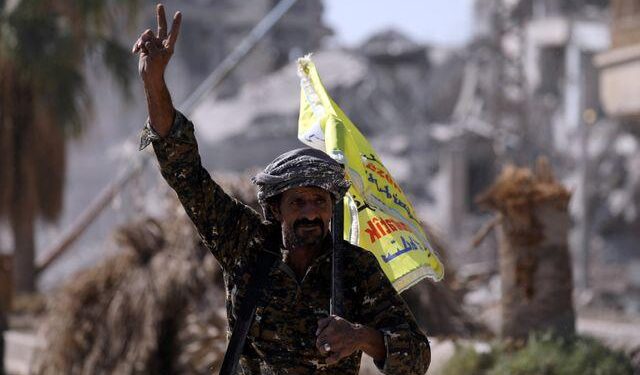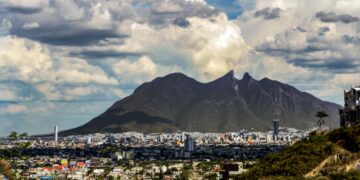US Endorses Syrian Democratic Forces Amid Renewed Push for Turkey-SDF Dialogue
In a notable shift within the complex Syrian conflict, the United States has reaffirmed its strong support for the Syrian Democratic Forces (SDF), while simultaneously urging renewed diplomatic engagement between Turkey and the Kurdish-led group. This development coincides with intensifying negotiations in Damascus that could alter longstanding regional alliances and influence Syria’s future political landscape. As Washington attempts to balance its strategic ties with both Ankara and the SDF, these evolving discussions carry significant implications for stability across northeastern Syria and beyond.
Reassessing US Strategy: Strengthening Ties with the SDF Amid Regional Negotiations
The US envoy to Syria recently emphasized that backing the SDF remains crucial not only for counterterrorism efforts but also as a cornerstone of broader American interests in maintaining regional security. With multiple actors—including Turkish officials and representatives from Damascus—engaged in ongoing talks, there is growing recognition of the need to foster constructive communication channels between Turkey and Kurdish forces. The envoy highlighted several key priorities:
- Comprehensive Engagement: Advocating an inclusive approach involving all principal stakeholders.
- Security Enhancement: Recognizing the SDF’s vital role in combating extremist groups destabilizing northern Syria.
- Civilian Protection: Emphasizing humanitarian considerations amid military and political maneuvers.
| Main Actor | Current Stance |
|---|---|
| The United States | Sustains support for SDF; encourages dialogue with Turkey |
| Turkey | Keeps military presence; demands security assurances against Kurdish militias linked to PKK |
| The Syrian Government (Damascus) | Pursues diplomatic solutions aiming at restoring sovereignty over all territories |
| Syrian Democratic Forces (SDF) | Aims to maintain autonomy while ensuring regional stability in northeast Syria |
The Imperative of Dialogue: Bridging Divides Between Turkey and Kurdish Groups for Lasting Peace
The call by US officials encouraging direct talks between Ankara and Kurdish factions underscores an urgent need to de-escalate tensions that have long fueled instability along Syria’s northern border. Controlling substantial swaths of territory, including key urban centers like Qamishli, the SDF remains central not only as a military force against jihadist elements but also as a political actor whose inclusion is critical for any durable peace settlement.
This proposed dialogue offers multiple potential benefits:
- Tension Reduction: Lowering risks of armed clashes which have displaced thousands over recent years.
- Civic Representation: Integrating Kurdish voices into national governance frameworks enhances legitimacy.
- < strong > Joint Security Efforts: Coordinated actions against extremist groups such as ISIS can strengthen overall regional safety.< / li >
Although obstacles remain significant—ranging from mutual distrust to divergent objectives—the international community’s encouragement could catalyze breakthroughs leading toward reconciliation. Moreover, fostering economic cooperation through cross-border trade initiatives may help solidify peace dividends benefiting diverse communities throughout northeastern Syria.
Navigating Diplomatic Challenges: Strategic Recommendations For Advancing Peace Talks In Syria
The protracted nature of conflict demands innovative diplomacy tailored toward inclusivity and trust-building among competing parties. Recent statements by US envoys highlight empowering local actors like the SDF while balancing Ankara’s legitimate security concerns related primarily to alleged links between some Kurdish factions and Turkey’s designated terrorist organization PKK (Kurdistan Workers’ Party).
To enhance prospects for successful negotiations, several strategies merit consideration:
- < strong > Inclusive Forums: Create negotiation platforms where representatives from Turkey, Damascus, Kurds/SDF, alongside international mediators can engage transparently.< / li >
- < strong > Confidence-Building Initiatives: Implement ceasefire agreements coupled with humanitarian corridors ensuring aid delivery.< / li >
- < strong > Neutral Mediation: Employ impartial third parties such as UN agencies or trusted states capable of bridging divides.< / li >
- < strong > Cultural & Economic Collaboration: Promote joint infrastructure projects or cultural exchanges fostering mutual understanding.< / li >
< / ul >< th scope="col" style="width:50%;">Diplomatic Strategy< / th >< th scope="col" style="width:50%;">Primary Objective< / th > < td style="width:50%;">Security Assurances< / td >< td style="width:50%;">Address Turkish concerns regarding threats posed by certain armed groups within SDF ranks< / td > < td style="width:50%;">Economic Incentives< / td >< td style="width:50%;">Support reconstruction efforts through targeted financial aid encouraging cooperation among factions< / td > < td style="width:50%;">Regional Stability Frameworks< / td >< td style="width:50%;">Develop multilateral agreements involving neighboring countries focused on shared security challenges< / td > A Forward Look at Geopolitical Implications And Prospects For Stability In Syria
The renewed emphasis on supporting the Syrian Democratic Forces alongside calls for dialogue with Turkey marks a critical juncture amid shifting geopolitical currents surrounding Syria’s future governance structure. As diplomatic momentum builds around talks held in Damascus—and potentially other venues—the global community watches attentively given how outcomes here will ripple across broader Middle Eastern dynamics.
This evolving scenario places U.S.-Turkey relations under close scrutiny since both nations hold pivotal roles influencing outcomes on ground realities concerning Kurdish autonomy aspirations versus Ankara’s national security imperatives. The coming months are likely decisive as stakeholders navigate these intricate issues seeking pathways toward sustainable peace after more than a decade marked by violence and fragmentation throughout much of Syrian territory.













Brothers in Arms: Macron, Merz, and Starmer Join Forces to Forge a New Era Beyond the U.S